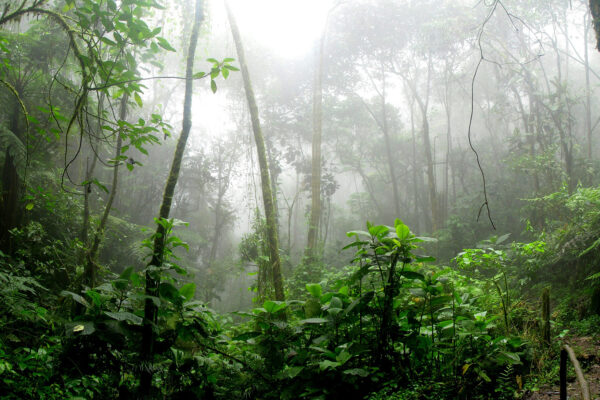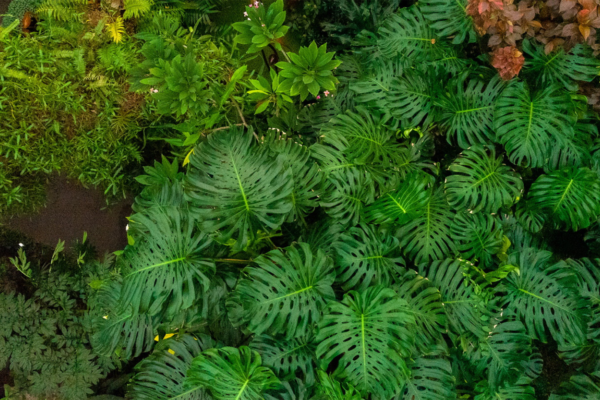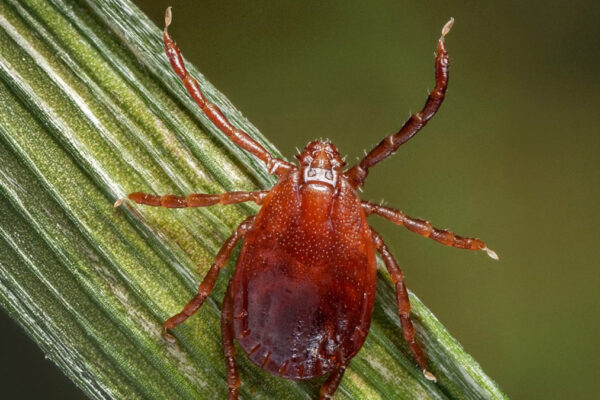Class Acts: Emily Culley
Emily Culley, a PhD candidate in earth, environmental and planetary sciences in Arts & Sciences, uses images from NASA’s Lunar Reconnaissance Orbiter Camera to investigate the surface of the moon. She’s passionate about fostering an inclusive environment in the sciences.
Tropical bounty: How forests can turn into chemical factories
A team led by biologists in Arts & Sciences and the Missouri Botanical Garden uncovered the ecological forces that drive remarkable chemical diversity of trees in the Andes mountains.
How to (theoretically) spot an alien
Physicist Mikhail Tikhonov in Arts & Sciences proposes an outside-the-box idea for detecting alien biology. His new study is published in Nature Communications.
What makes a 1-in-1000-year storm, really?
Thunderstorms that swept the central U.S. in 2022 were unprecedented, but their extreme precipitation may not be that rare — especially with global warming, according to a new analysis from researchers in Arts & Sciences.
Could convection in the crust explain Venus’ many volcanoes?
New calculations by Arts & Sciences researchers suggest surprising geology beneath Venus’ surface.
World-renowned experts in tropical plant biodiversity join WashU, Missouri Botanical Garden
Lúcia Lohmann and Toby Pennington will have joint appointments with both research institutions.
Crystallizing time
Physicists in Arts & Sciences have created a new phase of matter in the center of a diamond. They created a new form of time crystal called a discrete-time quasicrystal. Such states could be useful for high-precision sensing and advanced signal processing.
Decades-long quest leads to new antibiotic compounds
A multidisciplinary team led by WashU chemists repurposed an antimalarial drug in the fight against antibiotic resistance.
Bringing expansion microscopy to plants
Biologist Kevin Cox, in Arts & Sciences, has discovered a low-cost way to more easily study the detailed makeup of plant cells. The ultimate goal is to help grow better crops, improving food security.
Invasive longhorned tick discovered in St. Louis County
WashU researchers recently identified the first longhorned tick found in suburban St. Louis County. In concert with a local community science effort, Tick Watch STL, the researchers will conduct additional tick investigations in the region.
View More Stories









